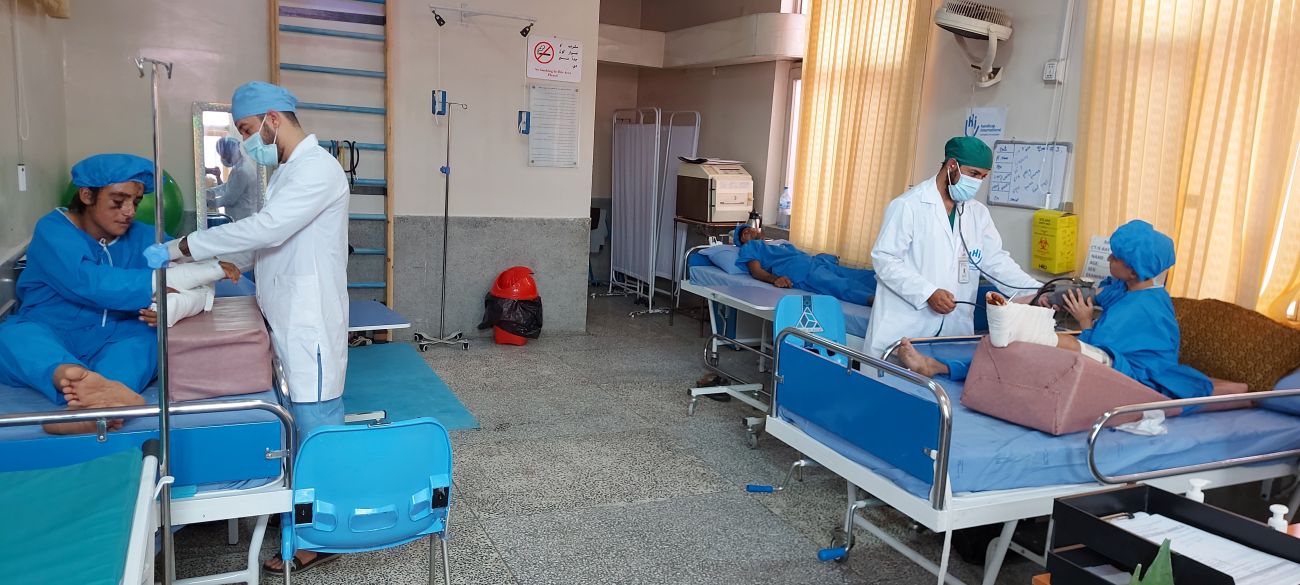Since the Taliban seized power in August 2021, the humanitarian context has deteriorated significantly in Afghanistan. With the collapse of the economy, the worst drought in decades and the consequences of years of war, people are struggling to survive.
What is the humanitarian situation in Kandahar today?
The humanitarian context is still complex. There has been no improvement in food insecurity and unemployment and poverty are widespread. The financial system is not fully functional, with businesses unable to access their funds in the banks, for example. Inflation, drought and recent flooding in some districts have exacerbated the situation.
Humanitarian needs are huge and have not been fully met by the assistance that the international community pledged in August 2021. As for mine action programmes, funding has been cut, which is increasing the exposure and vulnerability of communities living in areas contaminated with mines and other explosive remnants of war.
What is daily life like in Kandahar?
People are extremely anxious about their future. The daily life of women and girls has been very seriously affected. For almost a year now, girls have not been allowed to go to school beyond 7th grade. Thousands of girls and women are very concerned about their education and their future.
Are we still able to work with and for women?
Our female staff have been able to continue working in the provincial capital and 6 districts of Kandahar province. The credit for this goes to our committed field staff for their active engagement with community elders and local representatives, and to the authorities for facilitating access to our life-saving activities in conflict-affected and underserved areas.
What kinds of people do you see at the rehabilitation centre in Kandahar?
We had more than 700 cases last June. Most of the disabilities are congenital or due to birth defects or road or domestic accidents. Fifty cases were due to injuries caused by armed violence.
Fortunately, we are not seeing any new cases of war victims. There has also been a reduction in the number of new victims of mine or explosive remnants of war accidents. This is largely due to Humanity & Inclusion (HI)’s mine risk educators who raise the awareness of thousands of children and adults in at-risk areas each month.
Rehabilitation needs in general are still huge. People come to the centre every day, some of them from very far afield. There are only two rehabilitation centres serving the south of the country, so for some families the journey to the centre can take a whole day.
Since August 2021, we have seen a significant increase in patient numbers. Now that the fighting, the roadblocks and the strict security measures have ended, more people are able to get to us. We are currently seeing more than 130 people a week at the Kandahar centre.
Do we have new activities at the centre?
Last June, HI opened a Step-Down Unit at the Kandahar rehabilitation centre. This Unit is designed to ensure a smooth and uninterrupted transition from acute trauma care to comprehensive rehabilitation services for patients with complex injuries and a high risk of complications and permanent disability. It also provides healthcare services for musculoskeletal and neurological sub-acute conditions that require comprehensive early rehabilitation care.
The Unit adopts an interdisciplinary approach (health, rehabilitation and psychosocial support services) during the early comprehensive rehabilitation phase. It also ensures the provision of psychosocial support for patients and relief for caregivers and accompanies the recovery process through further follow-up at the rehabilitation centre, outpatient care and community inclusion.
HI’s team of doctors and nurses (3 men and 3 women) provides a 24/7 service at the Step-Down Unit. Between 6 June 2022 to 26 July 2022, they admitted and treated 56 patients, including 44 adults (28 men, 16 women), and 12 children (6 boys, 6 girls).
How clear is the link between disability and explosive devices in Afghanistan?
Based on the data from our centre, the majority of people with acquired disabilities are victims of explosive devices, landmines and other remnants of war. In Afghanistan, disability prevalence is very high. 80% of the adult population has some form of disability due to mines and explosive remnants of war, armed conflicts or limited access to health and nutrition services.
 Photo taken on 26 July 2022 by HI staff in Kandahar. © HI
Photo taken on 26 July 2022 by HI staff in Kandahar. © HI
What is HI’s response to this situation?
HI provides rehabilitation care, as the country’s health system is unable to meet the demand. Given the scarcity of physical therapy services, we have developed a 3-year training curriculum and are currently training some 120 future physical therapists. We also provide psychosocial support to many people suffering from stress and anxiety, as there are very few mental health services in the country. And we conduct risk education sessions, as the presence of mines and explosive remnants of war remain a daily threat to the population.
Lastly, HI teams in Kunduz and Herat have started distributing cash assistance to support families with the lowest income. Between 6 and 9 allowances of 200 dollars are being paid to 1600 households to enable them to buy food and access basic services such as healthcare.





